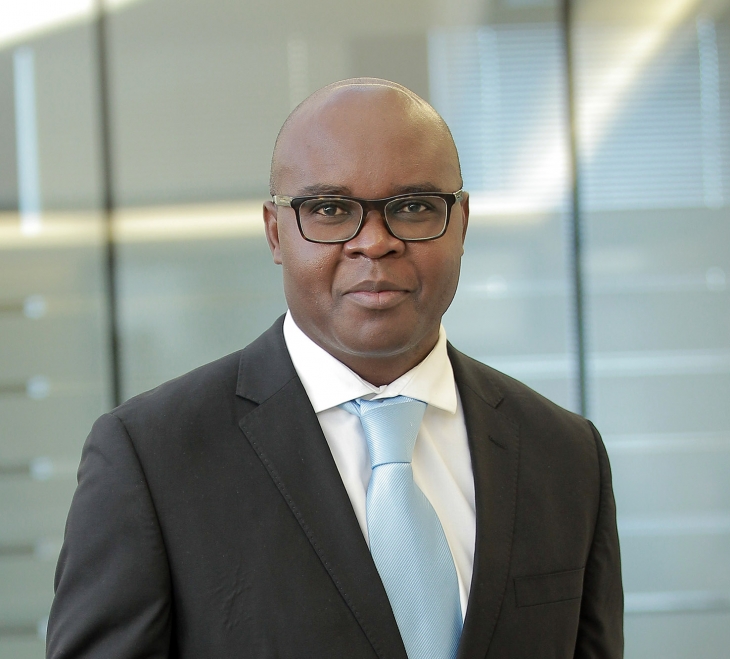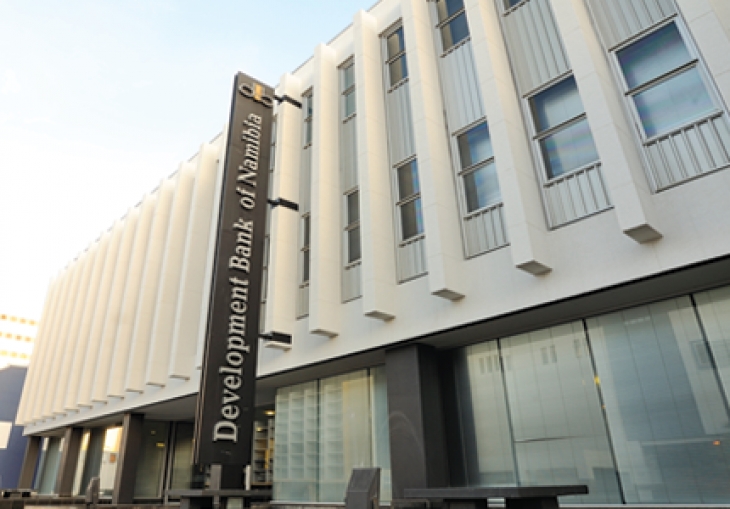 Call 061 290 8000
Call 061 290 8000 Click to mail us
Click to mail us FAQs
FAQs
Development finance steps up to the Harambee plate DBN CEO Martin Inkumbi on availability of large-scale infrastructure and enterprise finance and DBN’s alignment to the Harambee Prosperity Plan
Development Bank of Namibia (DBN) CEO, Martin Inkumbi, has announced that the Bank is prioritising infrastructure and business projects which are aligned to the pillars of the Harambee Prosperity Plan (HPP).
The priority infrastructure areas, to which the Bank may contribute with finance, are energy, water, transport and ICT. The Bank will consider projects in these areas, promoted by private entrepreneurs, through public private partnerships (PPPs), as well as public institutions such as SOEs.
He illustrates the difference by pointing to finance for Erongo RED to secure power supplies at the coast as an SOE, and finance for Omburu Sun Energy as a utility owned and operated by a private sector entity.
Inkumbi says the prioritisation is not a shift away from the Bank’s focus on key sectors identified by National Development Plan 4 (NDP4), but an additional focus for the Bank. The Bank will continue to provide finance for larger enterprises, with annual turnovers of more than N$ 10 million, in the key NDP4 sectors of manufacturing, transport and logistics, and tourism.
He adds that the Bank’s historical track record closely matches the requirements of HPP. The Bank, Inkumbi says, has been active, since inception, in HPP priority areas such as social progression (the 3rd Pillar of HPP) through financing the delivery of serviced land and housing, and improvement and expansion of education and health services, through finance to private educational institutions and private medical services providers.
Talking about other aspects of transformation entailed in HPP, Inkumbi says although the Bank seeks returns to sustain its activities through repayment of finance with interest, as well as capital preservation through the requirements of collateral and /or guarantees, it also contributes to socio-economic transformation through its corporate social investment programme without expectation of returns.
Asked about financial sustainability in light of the current realignment of fiscal resources by the Government, Inkumbi says the Bank is one of the agencies that can fill the temporary gap in provision of finance, provided that projects are in line with the focal areas of HPP.
He goes on to say that project planning and implementation timelines, justify immediate contact with the Bank. The Bank has its own processes and expertise for assessment of large scale infrastructure. By approaching DBN early, project initiators can ensure that financial resources are available, when required, and that the Bank can assist with risk mitigation with the experience that it has developed through financing multiple large-scale projects and enterprises over the years.
Inkumbi concludes by saying that the Bank provides access to services not just in Windhoek, but also in the hub economic centers of Ongwediva and Walvis Bay. He encourages project initiators to make use of DBN’s open doors to further Harambee with projects that fall within the Prosperity Plan’s focal areas.
DBN ceases lending to SMEs
DBN will not consider loan applications from enterprises or business projects with a turnover of less than N$ 10 million per annum.




